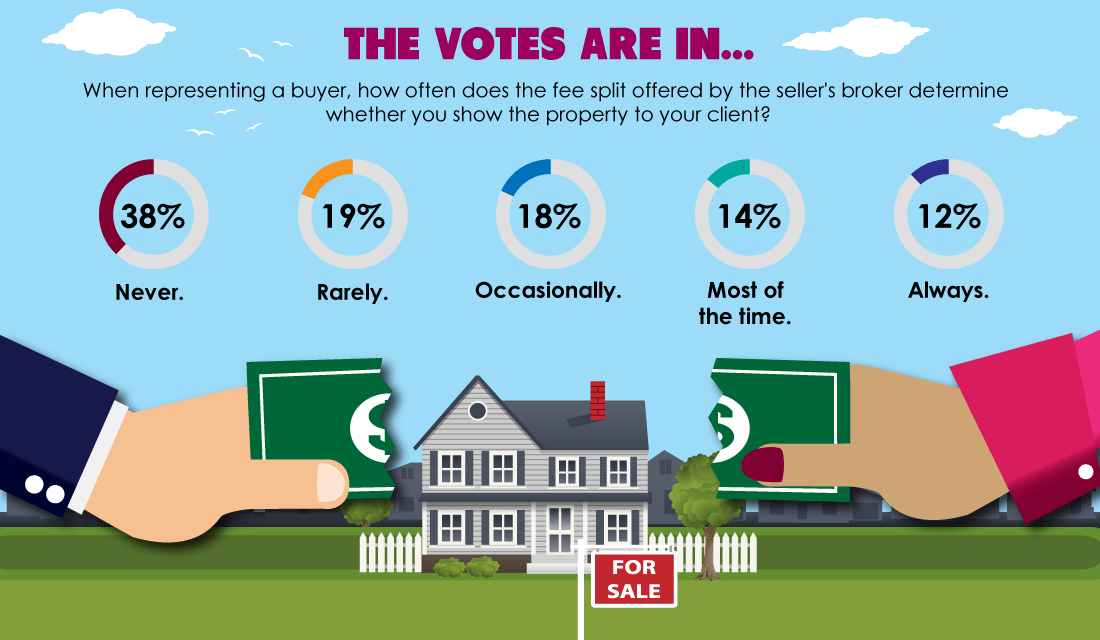For the past several years, first tuesday has asked readers whether any fee split they might receive determines whether they show a property to a client. The majority of respondents claim the fee split “rarely” or “never” influences their decision to show a property.
However, a consistent subset of respondents — roughly 20% to 30% — “most of the time” or “always” base their decision to show a property on the fee split they receive. That’s about one in four people who have responded to these polls.
The trend is troubling, but not surprising. This issue has been around for years, and there is little consensus about what constitutes ethical practice with regard to fee splitting. Why should a seller’s agent offer a high fee split when they know their client’s home will sell relatively quickly? On the other hand, when a seller’s agent offers a low fee split, is it worth it for the buyer’s agent to show the home at the expense of their own income?
Can’t do the splits
There’s no hard and fast answer to either one of these questions. But the first thing to keep in mind is that every agent owes their client a fiduciary duty, meaning an agent is bound to act in good faith toward their client, without misrepresentation or concealment of any material fact affecting the client’s real estate goals.
In context, this means a buyer’s agent is duty-bound to show any qualifying property to their client, and not doing so is in direct violation of that fiduciary duty. [Calif. Civil Code §2079.16]
Here, it is the seller’s agent, not the buyer’s, who controls the fee split, a power imbalance that is detrimental to the buyer’s agent’s negotiating power.
However, as we’ve pointed out before, buyer’s agents may simply include a fee split provision in negotiations such as a buyer’s listing agreement and a purchase agreement as a matter of practice. Fee splits are always subject to negotiation, even when there is a risk that a seller’s agent, on seeing a purchase agreement with an included fee provision not to their liking, may reject the offer on the basis of an unfavorable fee split.
For this reason, negotiation is not always a perfect solution and the reality is that sometimes buyer’s agents will have to cave to the demands of a seller’s agent in a more favorable negotiating position.
At the end of the day, the only thing that is not negotiable is the agent’s fiduciary duty owed their client. No matter how favorable or unfavorable the fee split, an agent has a duty to act in the best interest of the client — always.


















